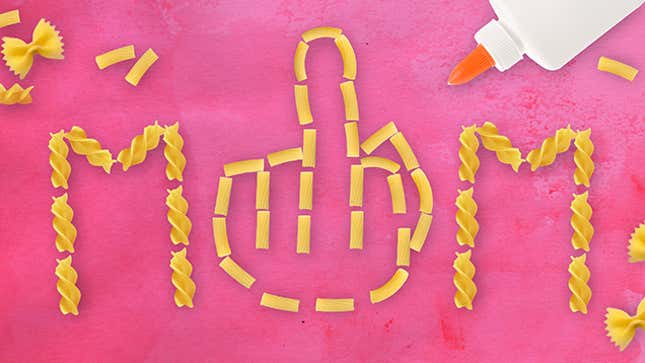Clueless Mom Doesn't Get Why Her Kids Hate Her
Latest

PSA: Sometimes people really do hate you for no good reason and through no actions of your own. But if those people are your children, it’s probably worth trying to figure out what really happened. Or, you could be like Elizabeth Vagnoni, who excels at digging into all facts except the most relevant.
Rather than really investigate why her adult children refuse to speak to her, Vagnoni, a documentary filmmaker, has researched just about every topic in relation to estrangement, including presenting and conferences and co-authoring papers about the rampant problem of narcissism in the young, which she has decided is the real culprit here. Vagnoni explores all this in an article titled “Why Some Grown Kids Cut Off Their Parents,” which I seriously had to re-read a few times because at first I thought was a satirical counterpoint op-ed in The Onion at first.
But no. It is sadly real. Vagnoni starts out sympathetically enough in her piece at Next Avenue, which begins:
The truth is — I am estranged from my two adult sons.
The truth is — I love my sons and I miss them every day.
The truth is — I can’t understand how in the world this has happened.
The truth is — saying you love them and miss them is not enough. There is much more to say, but you need a conversation — you need actual interaction, not just silence.
There’s definitely much more to say—directly to her sons, and not, say, conference attendees or Internet audiences, but, you know, quibble. But from here, let’s just say “the truth” appears to take a flying leap out of the realm of the knowable, possible, or believable for the rest of the article, where Vagnoni spends at best a few lines on any of the details that would help the average person even understand why her two adult sons won’t speak to her. Those include a reference to having been “met with silence when trying to understand” their point of view, and this little gem buried at the end:
My sons consistently refuse to reply to my emails and let my calls go to voicemail, or barely speak if they do answer. They accuse me of being a terrible person, but won’t elaborate about exactly what I’ve done. Well, sometimes they do, but it doesn’t make sense, at least to me. For example, it’s hard to be part of the birth of my grandchild if I didn’t know that I was going to have one!
All this started because of a personal email they felt entitled to read on my computer.
Whoa whoa whoa hold the phones, grandma. WTF WAS IN THE EMAIL? Surely it wasn’t a letter to your gardening club about how excited you are to look over the latest Victorian Trading Co. catalog? Ann Taylor coupons? Maybe it… revealed something really horrible, like a secret family or a plan to murder your adult children, or literally any number of things too personal for us to know or guess that could feasibly make two grown children decide they’ve had enough? I think we can all assume that cutting off one’s parents is not a decision entered into lightly, and even grown kids who have every reason in the world to do so for their own emotional health still struggle enormously with it. As Emily Yoffe wrote in a piece examining the reasons people cut off contact:
-

-

-

-

-

-

-

-

-

-

-

-

-

-

-

-

-

-

-

-

-

-

-

-

-

-

-

-

-

-

-

-

-

-

-

-

-

-

-

-









































